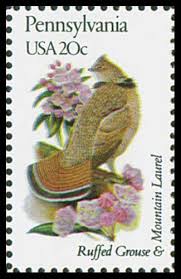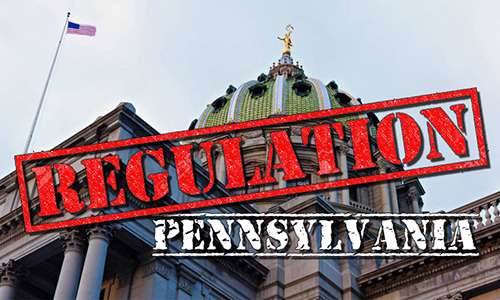Pennsylvania Casinos Balking at Online Gambling Bill
Two Wednesdays ago, a Pennsylvania gambling expansion bill, which includes the legalization and regulation of online gambling in PA, cruised through a vote of the full state Senate, 38-12. Only the day before, the bill easily passed votes in two Senate committees. H 271 is now back in the state House of Representatives, sent to the Rules Committee today, but if one major problem with the bill doesn’t change, Pennsylvania casinos won’t even bother with online gambling, poker or otherwise.
As has been written about here and all over the poker media landscape, the bill sets a tax rate of 54 percent for most forms of online casino gambling, including popular games like slots and blackjack. Online poker is taxed at a far more reasonable 16 percent. On top of that, the licensing fee for online gambling operators would be $5 million AND online poker licenses would be another $5 million. So a casino that would want to offer all forms of internet gambling (the state’s twelve casinos get first dibs at the twelve authorized licenses, according to the bill) would have to pony up $10 million before bringing in its first cent of revenue.
 Industry analysts say that the 54 percent rate would kill the online gambling before it even starts (it would likely need to come down by at least two-thirds) and, according to Matt Assad of The Morning Call, the Pennsylvania casinos agree.
Industry analysts say that the 54 percent rate would kill the online gambling before it even starts (it would likely need to come down by at least two-thirds) and, according to Matt Assad of The Morning Call, the Pennsylvania casinos agree.
Eric Schippers, spokesman for the Hollywood Casino at Penn National Race Course, told Assad, “If this bill passes as is, you’re going to hear crickets, because no casino is going to buy a license. It’s 24-hour liquor sales all over again.”
The liquor sales that Schippers is talking about has to do with a new liquor law that was signed about a year ago that gave casinos the opportunity to buy $1 million licenses for the right to serve alcohol around the clock. Without the license, the standard hours for alcohol sales applied.
So, an easy $12 million for the state, right? Not so fast. Casinos can sell alcohol 20 hours per day, with only the hours of 2:00am to 6:00am out of bounds. Not a single casino has applied for the $1 million liquor license, as there was no value to be found in paying that much money for the ability to serve the few patrons they had at those off hours.
State Senator Pat Browne, chair of the Appropriations Committee, doesn’t see how the gambling bill compares to the liquor bill, arguing that the brick-and-mortar casinos already pay 54 percent tax on slot revenues, have a ton more overhead, and had to pay $50 for a casino license.
The Sands Casino Resort Bethlehem feels the same way, but let’s all keep in mind that the CEO of the Las Vegas Sands Corp. is billionaire Republic political donor Sheldon Adelson, online gambling’s public enemy number one and the man who has said that he will do and spend “whatever it takes” to shut down online gambling in the United States. Sands Bethlehem wants no part of online gambling, anyway, because of who owns it, so really, any opinion coming from higher-ups at that casino should be taken with a large grain of salt.
We cited these numbers in a previous article, but we want to once again point to Steve Ruddock’s financial break down at Online Poker Report as evidence as to why Sen. Browne is way off base in thinking online casinos could handle the 54 percent tax rate and $5-$10 million licensing fee just because brick-and-mortar casinos can.
Using neighboring New Jersey’s numbers as a comparison, Ruddock found that 44 cents of every dollar of online casino revenue is used to attract and retain customers. 30 cents per dollar are used for an array of operating costs, like employee salaries and payment processing. After all expenses, New Jersey online casinos profit only about five cents per dollar of revenue.
And the 17.5 percent tax is already included in that figure; does anyone think that a casino could manage the 54 percent tax proposed in the Pennsylvania bill? Even if the sites shaved a few costs here and there, that is way too much ground to make up.
Sen. Browne is either being intellectually dishonest or just ignorant in believing that online casinos can manage the 54 percent tax rate just because land-based casinos can. What he’s not taking into account (or willfully ignoring) is that Pennsylvania’s dozen land-based casinos have a multitude of revenue streams in addition to gaming. Things like dining, hotel, shopping, and other entertainment add loads more money to the top line. Online casinos have almost nothing other than gaming revenue.
Greg Carlin, CEO of Rush Street Gaming, the operator of both the SugarHouse Casino in Philadelphia and Rivers Casino in Pittsburgh, said that with the outsized tax rate and licensing fees, “It will be impossible for operators to compete against illegal operators, other online entertainment services, and to develop and grow a sustainable business.”
Schippers added, “It’s clear to me that they don’t have a full understanding of what it takes to operate an iGaming operation.”
The Pennsylvania Senate is counting on the licensing fees to cover $120 million of the Commonwealth’s 2017-2018 budget. As it stands now, however, there won’t be close to that much money coming in. Sands Casino is clearly out and The Morning Call says Parx Casino is opposed to online gambling. Hollywood Casino and the two Rush Street properties won’t apply for licenses, so with those five, that’s $50 million in fees the state won’t be getting. Chances are, most of the rest of the casinos won’t apply for licenses with the insane fees and taxes, either, so that promise of $120 million plus tax revenue could be down to close to zero unless some major changes are made.



















COMMENTS